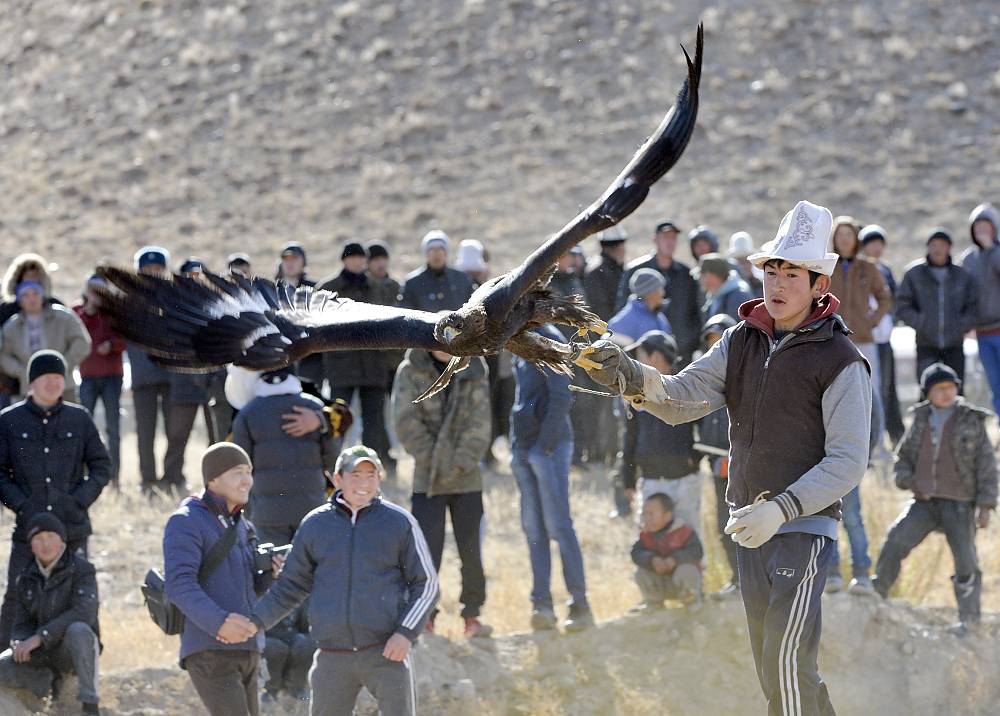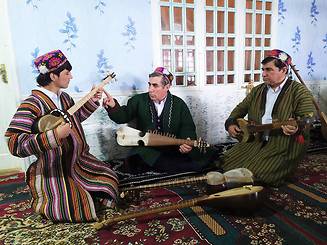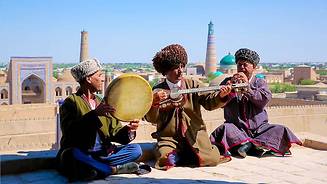20 December 2021
All nominations were inscribed during the Sixteenth Session of the Intergovernmental Committee for the Safeguarding of the Intangible Cultural Heritage, which was held fully online from 13 to 18 December 2021.
Falconry, a living human heritage
Jointly nominated by: United Arab Emirates, Austria, Belgium, Croatia, Czechia, France, Germany, Hungary, Ireland, Italy, Kazakhstan, Republic of Korea, Kyrgyzstan, Mongolia, Morocco, Netherlands, Pakistan, Poland, Portugal, Qatar, Saudi Arabia, Slovakia, Spain and Syrian Arab Republic.
Falconry is the traditional art and practice of training and flying falcons (and sometimes eagles, hawks, buzzards and other birds of prey). It has been practised for over 4000 years. The practice of falconry in early and medieval periods of history is documented in many parts of the world. Originally a means of obtaining food, falconry has acquired other values over time and has been integrated into communities as a social and recreational practice and as a way of connecting with nature. Today, falconry is practised by people of all ages in many countries. As an important cultural symbol in many of those countries, it is transmitted from generation to generation through a variety of means, including through mentoring, within families or in training clubs. The modern practice of falconry focuses on safeguarding falcons, quarry and habitats, as well as the practice itself. And while falconers come from different backgrounds, they share universal values, traditions and practices, including the methods of breeding, training and caring for birds, the equipment used and the bonds between the falconer and the bird. The falconry community includes supporting entities such as falcon hospitals, breeding centres, conservation agencies and traditional equipment makers.
Young falconry practitioner in one of the local falconry festivals in Kyrgyzstan.
© Salbuurun Federation/National Commission of the Kyrgyz Republic for UNESCO, 2019.
Falak
Nominated by: Tajikistan
Falak, meaning ‘heaven’, ‘fortune’ and ‘universe’, is the traditional folklore music of the mountain people of Tajikistan. The expressive and philosophical musical genre may be performed by a male or female soloist, either acappella, or with a single instrumental accompaniment or an ensemble and dancers. Characterized by their high range, falak songs most often relate to love, pain, suffering, the homeland, and separation and the hope of a reunion between a parent and a child or between two lovers. The instruments used for falak performances include traditional Tajikistani percussion and string instruments, such as violins and flutes. Falak performers, known as falakkhons, are the traditional singers and instrumentalists who perform falak during festivities, ceremonies and ritual events. However, the music may be performed in many contexts, including outdoors while working in the fields or looking after herds in the mountains, or during feasts and social gatherings. It is also performed during the annual ‘Day of Falak’ festival. Falak is viewed as a state of mind and an identity marker for the mountain communities. The tradition is passed from one generation to the next within families and through formal education.
The transmission process in the family ensemble of 'Kholovs', Said Kholov (in the center) is learning playing in musical instruments to his nephews.
Photograph: Zafar Kholmuradov
© National Commission of the Republic of Tajikistan for UNESCO, 2020.
Bakhshi art
Nominated by: Uzbekistan
Epic poetry plays a crucial role in the musical and poetic heritage of the Uzbek and Karakalpak people of Uzbekistan. Called dostons, the traditional centuries-old poems are based on myths, legends, folk tales and legendary chants, and address varied themes such as patriotism, commitment, love, friendship and solidarity. Bakhshi refers to the performance of these epic stories and original pieces with the accompaniment of musical instruments including the dombra (a stringed instrument) and the kobuz (a bowed instrument). The storytellers, also called bakhshis, perform the stories from memory, incorporating cultural traditions and practices. Successful bakhshis must have the ability to captivate listeners with their melodies and to narrate stories in an interesting and original way, making creative use of language, word games, proverbs and phrases. They must also be able to recite the long epic poems from memory. Although bakhshis were traditionally men, a group of women bakhshis emerged in the nineteenth century and continues to contribute to the tradition. The practice is passed on within families and through formal bakhshi schools. The art of bakhshi is a vital part of the Uzbek lifestyle, and the storytellers are always welcoming guests in family ceremonies, rituals, public holidays and local festivities.
Karimboy Bakhshi from Khorezm Region.
© National Commission of the Republic of Uzbekistan for UNESCO, 2019.
Nomad games, rediscovering heritage, celebrating diversity
Nominated by: Kyrgyzstan
Kyrgyz people’s cultural heritage is intrinsically linked to the nomadic lifestyle. However, during the Soviet era, which came with forced sedentation, many elements became endangered, including traditional games. After gaining independence in 1991, the local communities in Kyrgyzstan started working on revitalizing and celebrating their traditional culture. In this context, traditional game practitioners and knowledge bearers from different communities across the country held their first major meeting in 2007 to discuss current challenges for the traditional games and the safeguarding needs. The participants identified many challenges but agreed that some of them were very urgent: the first being the loss of knowledge about the traditional games and the second being the lack of interest among the younger generation to play the games. After long discussions and deliberations, the participants identified several safeguarding needs that shaped the Nomad Games: Rediscovering Heritage programme. The traditional game practitioners reached a consensus about the need to prioritize documentation and identification of traditional games in different parts of the country. These goals were prioritized because many people knowledgeable about traditional games were older and there was a real threat of losing their knowledge about traditional games unless it was documented.
Video documentation of the traditional game 'Ordo' in Issyk-Kul region. Based on the safeguarding needs, video documentations of the traditional games aims to raise the general public’s awareness.
© National Commission of the Kyrgyz Republic for UNESCO, 2019.
Permanent link: http://en.unesco.kz/four-nominations-from-central-asia-inscribed-in-the-representative-list-of-the-intangible




